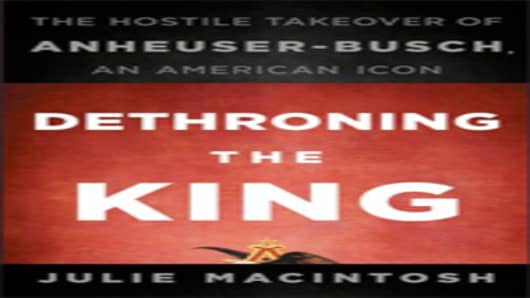Even iron-fisted August III, however, lost his way once the U.S. beer market grew saturated and, eventually, stale. He started relying on finding new ways to convince American drinkers to buy the same beer, rather than slashing costs and searching for an acquisition that could help spur growth. In 2008, InBev ultimately convinced shareholders that it, rather than the still-green CEO August IV and his team, was the better candidate to lead Budweiser into the next stage. Anheuser-Busch left itself no argument for staying independent. It spent frivolously for far too long, and it would have been ludicrous to argue that the takeover of the company by a foreign brewer somehow infringed upon America’s national interests.
Some of America’s most valuable assets today are its best-known brands, and companies that rest on their laurels aren’t merely vulnerable to attack by their neighbors. Dozens of aggressive foreign companies are looking for a bite at the American market, and the best way to make a lower-risk entrance is to snap up an American brand with built-in loyalty. The weak U.S. dollar, which has essentially put American companies on sale at a discount, only catalyzes that demand.
This is healthy, to an extent. There’s nothing wrong with a slow seepage in control of certain older, more mature corporate assets to overseas buyers, as long as there are plenty of little corporate seedlings rising up to supplant their predecessors and become the next loyalty-engendering institutions. Those Americans who bemoan the loss of their Whoppers and Bud Light can take solace in the astronomical success of newer American brands, with Facebook as perhaps the most notable example, and in how quickly those brands can rise to the top.
To read an excerpt from"Dethroning the King: The Hostile Takeover of Anheuser-Busch, an American Icon"click here.
Email me at bullishonbooks@cnbc.com — And follow me on Twitter @BullishonBooks





